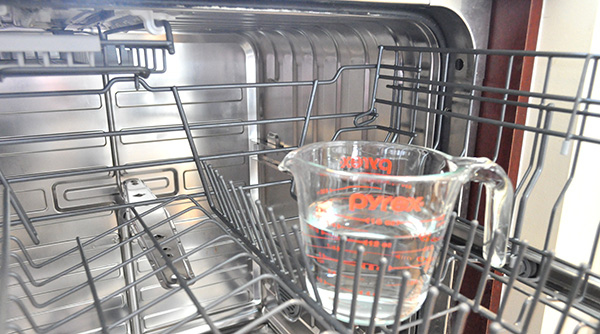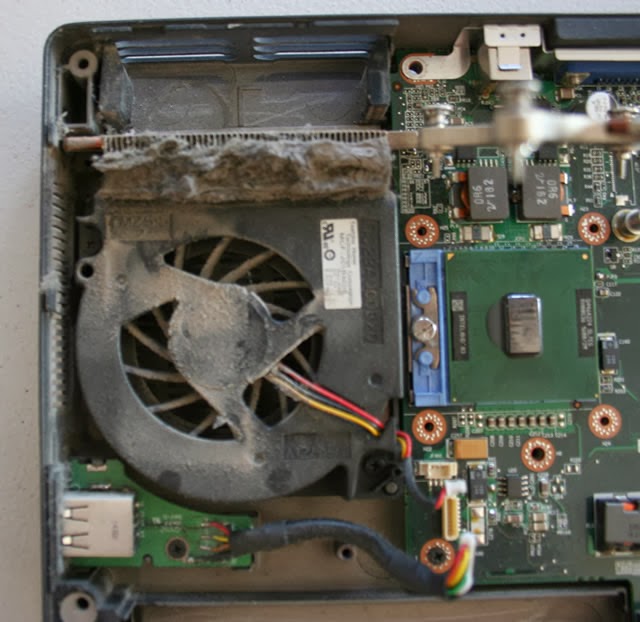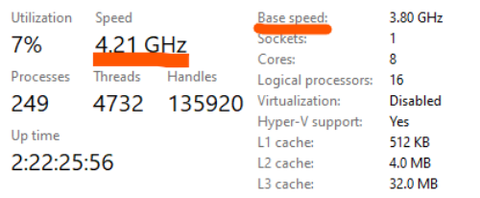What to Do About a Smelly Dishwasher: A Comprehensive Guide
Introduction
A dishwasher can be a kitchen lifesaver, efficiently keeping your dishes clean and your sink clutter-free. However, a foul smell emanating from your appliance can interrupt this convenience. While this issue is common, you don't have to settle for a smelly dishwasher. This comprehensive guide explores why dishwashers stink, how to solve this problem, effective daily maintenance habits, and when to call in the professionals.
Why Does My Dishwasher Smell?
A dishwasher's unpleasant smell can certainly take you by surprise. There are several factors contributing to this common problem; it's essential to identify the cause to find the right solution. Here are some possible culprits:
- Food Debris: Tiny food particles often get stuck in your dishwasher, especially in hard-to-clean areas like the filter or drain. Over time, these leftovers can decompose, producing a foul odour.
- Soap and Grease Residue: Dishwasher soap and grease can adhere to the interior surfaces of your dishwasher. This buildup, if not regularly cleaned, can result in a slimy layer that hosts bacteria and mould, leading to unpleasant smells.
- Hard Water: Do you live in an area with hard water? If so, your dishwasher could be accumulating mineral deposits, which can also add to the stench.
- Clogged Drain Hose: Ideally, your dishwasher's drain hose should function seamlessly. However, blockages can occur, trapping food particles that decompose and smell over time.
In order to maintain a fresh-smelling dishwasher, understanding these possible causes is the first step towards implementing effective solutions and preventive measures.
What Are the Basic Steps to Clean a Smelly Dishwasher?
A clean dishwasher is central to ensuring it functions optimally and remains free from nasty smells. Follow these simple yet effective steps to clean and deodorize your dishwasher:
1. The Dishwasher Filter: Start by locating and removing the dishwasher filter. Rinse it under running water to remove food debris. For stubborn residues, use a soft brush or sponge and dish soap to scrub off the particles gently.
2. Interior Walls: Dampen a cloth with warm water and some mild dishwasher soap. Use this to thoroughly wipe down the dishwasher's interior walls, ensuring no part is left untouched.
3. Drain Area: Frequently overlooked, the drain can harbor leftover food particles that contribute to bad smells. Carefully inspect and clean this area to ensure there are no blockages.
4. Deep Cleaning: To remove any lingering odours, perform a deep clean. You can use a special dishwasher cleaner or opt for homemade solutions like white vinegar. Simply place a cup of white vinegar on the upper rack and run a hot-water cycle.
5. Drying: After cleaning, leave the door open for a few hours to allow the dishwasher to dry and the smell to dissipate completely.
This routine might seem lengthy, but it only needs to be performed once a month or whenever your dishwasher starts to give off an unpleasant smell. However, if the odours persist even after the deep clean, it might indicate a bigger issue that may need a professional's attention.
What Deeper Solutions Can Be Applied for Persistent Odours?
If routine cleaning practices aren't enough to rid your dishwasher of a stubborn odour, it may be necessary to employ more advanced techniques. Here are some effective methods:
- Scrubbing Hard-To-Reach Areas: There are places in your dishwasher that a simple wipe-down may not reach. For such situations, use a toothbrush to effectively scrub these areas. Key locations include the door hinges and underside of the racks.
- Intensive Washing Cycle: Using strong dishwasher cleaning agents or a homemade concoction of baking soda and vinegar could do the trick. To do this, add a generous amount of baking soda to the bottom of your dishwasher, and then place a cup of vinegar on the top rack. Run a hot water cycle and let the natural cleaners do their work.
- Water Softening: If you're dealing with hard water, the accumulation of mineral deposits in your dishwasher could be causing the smell. Installing a water softener could resolve the issue permanently.
- Replacement of Parts: Sometimes a persistent odour signifies deeper structural issues with your dishwasher like worn-out seals or a decaying drain hose. In such cases, the offending part should be replaced to restore a fresh aroma.
If all these methods prove unsuccessful in eliminating the odour, it might be time to call a professional. Dishwasher smells can sometimes indicate more complex problems that are best dealt with by a professional repair service.
What Daily Maintenance Habits Can Prevent Dishwasher Smell?
Implementing routine maintenance habits can significantly minimize the chances of your dishwasher developing unpleasant odours. Here are some steps you can incorporate into your daily routine:
- Rinse Before Loading: One of the simplest yet effective measures involves rinsing your dishes before loading them into the dishwasher. This practice helps eliminate food particles that could potentially cause odours.
- Post-Cycle Cleaning: Ensure the cleanliness of your dishwasher after each cycle. Remove and clean the filter and wipe out any residues left on the interiors or dishwasher floor.
- Airing it Out: After every use, leave your dishwasher door slightly ajar. This habit allows air to circulate, discouraging mould growth and smells.
- Judicious Use of Detergent: Use the correct amount of detergent. An excess quantity can lead to residue build-up, whereas too little won't effectively clean dishes, both leading to unpleasant smells.
- Monthly Cleaning Cycle: Make it a habit to run a cleaning cycle every month. This practice keeps your appliance fresh, and operating optimally. You can accomplish this by using a specific dishwasher cleaner or natural home remedies like vinegar.
These simple daily tasks can significantly lower the chances of your dishwasher becoming a nesting ground for bacteria and mould. By integrating these practical routines into your schedule, you can consistently enjoy the benefits of a clean, efficient, and odourless dishwasher.
When Should I Seek Professional Assistance for a Smelly Dishwasher?
While self-help measures can resolve common unpleasant odors, in some cases, you may need to engage professionals to fix your smelly dishwasher. The following scenarios signify that it might be time to call a technician:
- Persistent smell: When, despite regular cleaning and following maintenance procedures, your dishwasher continues to produce a bad odor, bring in expert help.
- Signs of technical faults: If you suspect any malfunctions associated with your dishwasher's components, such as a leaky seal or a broken pump, it's wise to involve a professional to conduct a thorough assessment and fix it.

- External plumbing issues: When the problem doesn't seem to originate from the dishwasher itself, but possibly from connected plumbing lines, it’s best to seek professional help.
- Need for a part replacement: Some parts like drain hoses or internal components might require a replacement for the unit to function optimally. Professional advice and installation can ensure the efficient operation of your dishwasher.
- Ineffectiveness of deep cleaning solutions: If your dishwasher still smells after using intensive cleaning solutions like baking soda and vinegar, or commercial dishwasher cleaners, it might indicate a deeper-rooted issue that only a professional can spot and fix.
Remember that regular maintenance can prevent many dishwasher odor problems. However, when the smell persists, it's not just a nuisance but potentially a sign of a more significant problem. Timely professional intervention can save you from more serious - and possibly costly - troubles down the line. After all, a clean, efficient, odor-free dishwasher is essential for a pleasant kitchen environment.
Conclusion
A smelly dishwasher can disrupt your kitchen peace, but this guide offers various strategies to manage and prevent this issue. Regular cleaning, habitual maintenance, and timely professional assistance can ensure you enjoy a clean, efficient, and odour-free dishwasher. Remember, an effective strategy is one that is proactive, not reactive.
Related FAQs about what to do about a smelly dishwasher
What Could Be the Major Causes of a Smelly Dishwasher?
Common sources of dishwasher smell include leftover food particles, soap and grease residue, hard water resulting in mineral deposits, and clogs in the drain hose. These factors can lead to the growth of bacteria and mold, causing unpleasant odours.
What Are Some Quick Fixes for a Smelly Dishwasher?
Quick fixes include cleaning the filter and drain, wiping down interior walls and running a hot water cycle with a cup of vinegar. After cleaning, leave the dishwasher door open to air out and dry, which helps eliminate smells.
Can Regular Cleaning Prevent Smell in a Dishwasher?
Yes, regular cleaning can help prevent odours in a dishwasher. This includes rinsing dishes before loading, cleaning the filter and drain area post-cycle, not overusing detergent, and running a dedicated cleaning cycle monthly.







